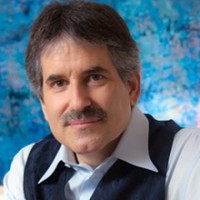My approach to meditation is very simple: be still, relax, pay attention, and assume no relationship to anything that arises.
No relationship to the content of consciousness is the posture of freedom. When you assume no relationship to your experience, you are aligning with the deepest part of yourself, which is the ground of all being. That groundless ground has never had a relationship to anything that ever happened in time, because it always abides prior to the world of time, form, and mind.
Under the right circumstances, it is not difficult to have a powerful experience of the ground of being, to taste its indescribable peace, bliss, rapture, and stillness—like a still forest pool, in which you sink ever more deeply, where your mind is not moving at all. It is very important to taste the inherent liberation of your own infinite depth, but that kind of experience, in and of itself, will not necessarily teach you how to have a liberated relationship to the chaos of your own mind and emotions. Sinking to the depths of your own self is always profoundly inspiring, but it’s not enough. It is equally important to know how to stay on the surface when a storm is raging and have no relationship to the chaos. For most of us, that is ultimately a source of greater confidence and soul-strength than the experience of infinite depth. And in fact, from an absolute or nondual perspective, being at the surface is no different than being at the very bottom of the pool. Even if it doesn’t necessarily feel that way, in time you will come to understand that it is the same. That is the secret of freedom.
One of the most difficult things to understand about enlightenment is that freedom is not a feeling. Freedom is not any particular experience, no matter how profound the experience may be. Freedom is not peace; freedom is not joy; freedom is not ecstasy. Peace, joy, and ecstasy feel free, but that is just a feeling of freedom, it is not freedom itself. A person who is not free can have an experience of sinking into the peace, joy, and ecstasy of the ground of being and feel during that experience as if they are free. But that doesn’t mean that they are actually a liberated human being. And on the other hand, a person who is free may experience pain, fear, frustration, confusion, or anxiety, and not lose their freedom. All experience comes and goes. The feeling quality of your own experience will always be changing, and all the more so if you live a deeply engaged and committed life. So if you want to be a liberated human being, that liberation is dependent only upon the position that you are taking in relationship to your experience; it’s not dependent upon the quality or the content of the experience itself.
This is a hard lesson to learn, but it’s very important. The way to practice it is, in the meditative state, to assume no relationship to the content of consciousness. The purpose of meditation is to maintain a posture of freedom, no matter what your inner experience may be. In that posture, you remove your attention from thoughts, images, and concepts, and allow it to come to rest upon consciousness itself. If you want to be free, it is important to learn how to directly experience the unbroken chaos and impersonal confusion of your own mind without being disturbed by any of it. Only if you can bear it will you be able to take responsibility for it. If you can’t bear it, others will inevitably suffer the consequences. If you can’t handle the contents of your own mind while you are simply being still and paying attention, then how are you going to be able to make the right choices when you are walking, talking, and engaging with others? So meditation is training for life.
When you assume no relationship to the content of consciousness, it doesn’t matter what arises—you may have the most sublime, glorious, ecstatic experiences, or you may be overwhelmed by frightening, dark, and malevolent impulses, but you remain disengaged and unmoved. We all have to be careful with the choices we make in relationship to our own internal experience, moment to moment, because there are always consequences. Whenever you allow yourself to be thrown around unconsciously by the inner storms of thought and emotion, you will pay a price for it. And the worst part of that price will be your own confidence, your own belief in your capacity to be free. But if you remain absolutely motionless, inwardly and outwardly, then when the storm passes, you’ll experience a tremendous sense of exhilaration, because you realize that your own intention to be free is stronger than the chaos of your own mind.










Read 0 comments and reply